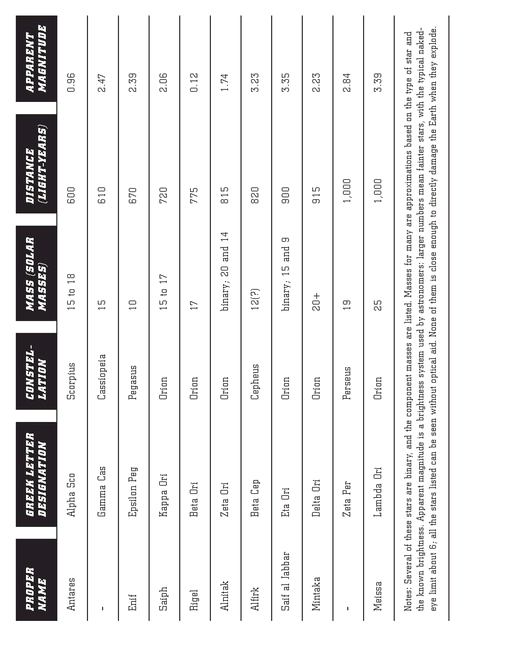Death from the Skies! (43 page)
Read Death from the Skies! Online
Authors: Ph. D. Philip Plait

Most of the Universe is lethal, but our little section of it is pretty cozy. The cosmos takes away, but it also provides. So go outside, enjoy a sunny day or a star-filled night. There is danger to avoid, but also beauty to behold, and you understand a little bit more about that sky now.
And understanding is always good.
Acknowledgments
A book that deals with everything from asteroid impacts to the quantum decay of the Universe is something of a big task, and not one to be undertaken either lightly or alone. If you took everyone I need to thank and put them in a room together, they would collapse into their own event horizon.
But let’s allow a little quantum Hawking radiation to escape, and see who pops up.
First, thanks go to my agent and to my editor, Loretta Barrett and Alessandra Lusardi. Loretta is a good person to have on your side in negotiations, and when the dust settled Alessandra did a fine job encouraging me when I suddenly realized I was actually going to have to write a book. Also my thanks to the folks at the Boulder Conference on World Affairs; it was because of that fine event that I met Loretta. I liked it so much I moved to Boulder.
I have a decent grasp of astronomy, but not anywhere near the level needed to cover the ground of this book. So I want to toss rose petals at the feet of the scientists who helped, tore apart, edited, dissected, examined, corrected, folded, spun, mutilated, and finally tech-edited what I wrote. They include Dan Durda, Ed Lu, Rusty Schweickart, Al Harris, Craig DeForest, Barbara Thompson, Caspar Ammann, Christopher Balch, Neil Gehrels (who was running an entire NASA mission during the time he took to help me!), Andrew Hamilton, Seth Shostak, Harriet Hall, Rich Pogge, Michelle Thaller, and Fred Adams. Any mistakes in this book are no doubt due to my own transcription issues after hours on the phone with all these fine folks.
My appreciation also to the people who personally gave me artwork for the book: Dan Durda, Dana Berry (his stuff is
amazing
), David Hardy, Chris Setter, and Aurore Simonnet.
amazing
), David Hardy, Chris Setter, and Aurore Simonnet.
To my friends, my co-workers (especially Sarah Silva), and my boss, Lynn Cominsky, who put up with me during this turbulent ride: thanks. A very special head bob to Fraser Cain of
UniverseToday.com
, who helped immensely and gave me tons of good ideas to help support the book online.
UniverseToday.com
, who helped immensely and gave me tons of good ideas to help support the book online.
Thanks go to the BABloggees and other minions who tolerated fewer blog posts for months while I scratched this thing out.
My family: again, you’ve been great during this ridiculous time. For my mom especially, who has encouraged me constantly, and very much for my dad, who would have loved to read this book.
And, as usual, I owe everything to Marcella and Zoe. I don’t believe in the supernatural of any kind, but if there is some sort of imprint, any echo of personality that embeds itself in our matter, then my love for both of you will endure for about 10
40
years. It would take me that long to express what it means to me anyway.
40
years. It would take me that long to express what it means to me anyway.
Appendix
Nearby Stars (Distance < 1,000 Light-Years) That Will Eventually Go Supernova


Index
Page numbers in
italics
refer to illustrations.
italics
refer to illustrations.
accretion disks
acid rain
active galaxies
Adams, Fred
air:
compression of
heating molecules of
alanine
ALHmeteorite
alien attack:
listening for
possibility of
and SETI
war and technology
what if?
Alpha Centauri
Ames Research Center, California (NASA)
amino acids
Ammann, Caspar
Andromeda galaxy
black hole in
collision with Milky Way
headed toward Milky Way
in Local Group
shape of
velocity of
what if?
Antarctica, meteorite found in
Antenna galaxies
antimatter
Arizona, Meteor Crater in
asteroid belt
asteroids:
attempts to explode
attempts to ram
changes in trajectories of
controlling the orbits of
cratering of
asteroids (
cont.
)
cont.
)
density of
destroying
dinosaurs killed by
discovery of
falling toward Earth
impact on Earth
impact on Moon
iridium in
main belt of
mass of
moving planets with
Near Earth Objects
Apophis
orbits of
origin of
possibility of impact
Potentially Hazardous Objects
rocket landings on
search for
as term
Mathilde
what if?
astrology
astronomy
atoms:
creation of
energy states of
ionized
nuclei of
atom smashers
aurora australis
aurora borealis
BFoundation
bacteria
alien
beneficial
interplanetary
symbiotic relationship with humans
bacteriophages
Barnard
BeppoSAX satellite
Big Bang
alternatives to
confirmation of
events following
use of term
what came before
Big Rip
binary systems
Black Hole Era
black holes
and accretion disks
approaching the solar system
bending light
bending space
Cygnus
definition of
and escape velocity
evaporation of
event horizons of
feeding
formation of
friction in
of galaxies
and gamma-ray bursts
and gravity
of M
and mass
possibility of
primordial
quantum
and shock waves
singularity of
sizes of
and spaghettification
spherical
stellar mass
supermassive (SMBH)
temperatures of
and tidal forces
and waterfall analogy
what if?
blazars
Bok globules
bombardier beetle
branes
brown dwarfs
calcium
Canada, power outage in
cancer
capsid
carbon
carbon dioxide
Carrington, Richard
Ceres
Chicxulub crater, Mexico
chlorine
climate change
clouds:
collisions of
formation of
molecular
cold war
comets
Hale-Bopp
impact on Earth
and Mars
nuclei of
organic compounds in
as wild cards
compass, magnetic needle of
Compton Gamma Ray Observatory satellite
conic section
convection
coronagraphs
coronal mass ejection (CME)
Cosmic Epochs
cosmic expansion
cosmic rays (CRs)
galactic
and gamma-ray bursts
intergalactic
and muons
Cox, T. J.
Crab Nebula
Cretaceous period
Cuba, Soviet missiles in
current, electrical
Cygnus
Cygnus
Dark Era
dark matter
dark nebulae
“daughter” elements
degeneracy
Degenerate Era
Deinococcus radiodurans
bacterium
bacterium
dinosaurs
dissociating
DNA:
damage to
and muons
of viruses
Drake, Frank
Drake Equation
Durda, Dan
dynamo
Earth:
age of
aging of
asteroids falling toward
atmosphere of
climate change on
cloud coverage of
death of
early conditions on
effects of cosmic rays on
effects of molecular clouds on
extinction events on
horizon of
impact of asteroids on
impact of comets on
and jet stream
life on
magnetic field of
meteoroids falling to
Moon in orbit around
Moon’s tidal force on
moving farther from Sun
orbit of
repopulation of
source of heat for
and Sun as red giant
and Sun’s expansion
temperatures on
Ebola virus
Einstein, Albert:
on cosmic expansion
and
E = mc
E = mc
on gravity
on relativity
on space and time
on speed of light
ekpyrotic universe
electricity
electromagnetic pulse of energy (EMP)
electromagnetic radiation
electromagnetic spectrum
electrons
end of everything
beginning of
deep time in
what if?
energy:
conversion to heat
creation of
E = mc
equation
equation
electromagnetic pulse (EMP) of
in magnetic field lines
from meteoroid explosions
in nuclear fusion
in quantum mechanics
Sun’s emissions of
energy state
escape velocity
Escherichia coli
(
E. coli
) bacterium
(
E. coli
) bacterium
Eskimo Nebula
Eta Carinae
Eureka
(Poe)
(Poe)
Europa
event horizon
evolution
exponential notation
extinction events
extremophiles
faculae
Fermi, Enrico
fission
food chain, disruption of
food poisoning
“forever,” meaning of
fragmentation
future:
extrapolation of
table of possibilities
galactic cosmic rays
galaxies:
active
aging of
Andromeda
Antenna
black holes of
collisions of
doom, possibility of
dust of
energy reservoirs of
formation of
gas clouds in orbit
gravity in
light emitted by
magnetic fields of
Milky Way,
see
Milky Way Galaxy
see
Milky Way Galaxy
NGC
regions of
shapes of
SMBHs of
spiral arms of
stars formed in;
see also
stars
see also
stars
tidal streams of
in Virgo Cluster
what if?
Galileo Galilei
gamma-ray bursts (GRBs)
beaming
birth of
and black holes
directional information sought for
distribution in space
effects from
and hypernovae
luminosity of
in the past
possibility of
rarity of
Other books
Taking a Chance on Love by Mary Razzell
A Simple Autumn: A Seasons of Lancaster Novel by Rosalind Lauer
The Celebrity by Laura Z. Hobson
Amandine by Marlena de Blasi
Lore by Rachel Seiffert
Christmas Male by Jillian Hart
Pep Confidential by Martí Perarnau
Harry Potter's Bookshelf by John Granger
Charlotte & Nate (Royals of Valleria #4) by Marianne Knightly
Tomy and the Planet of Lies by Erich von Daniken
